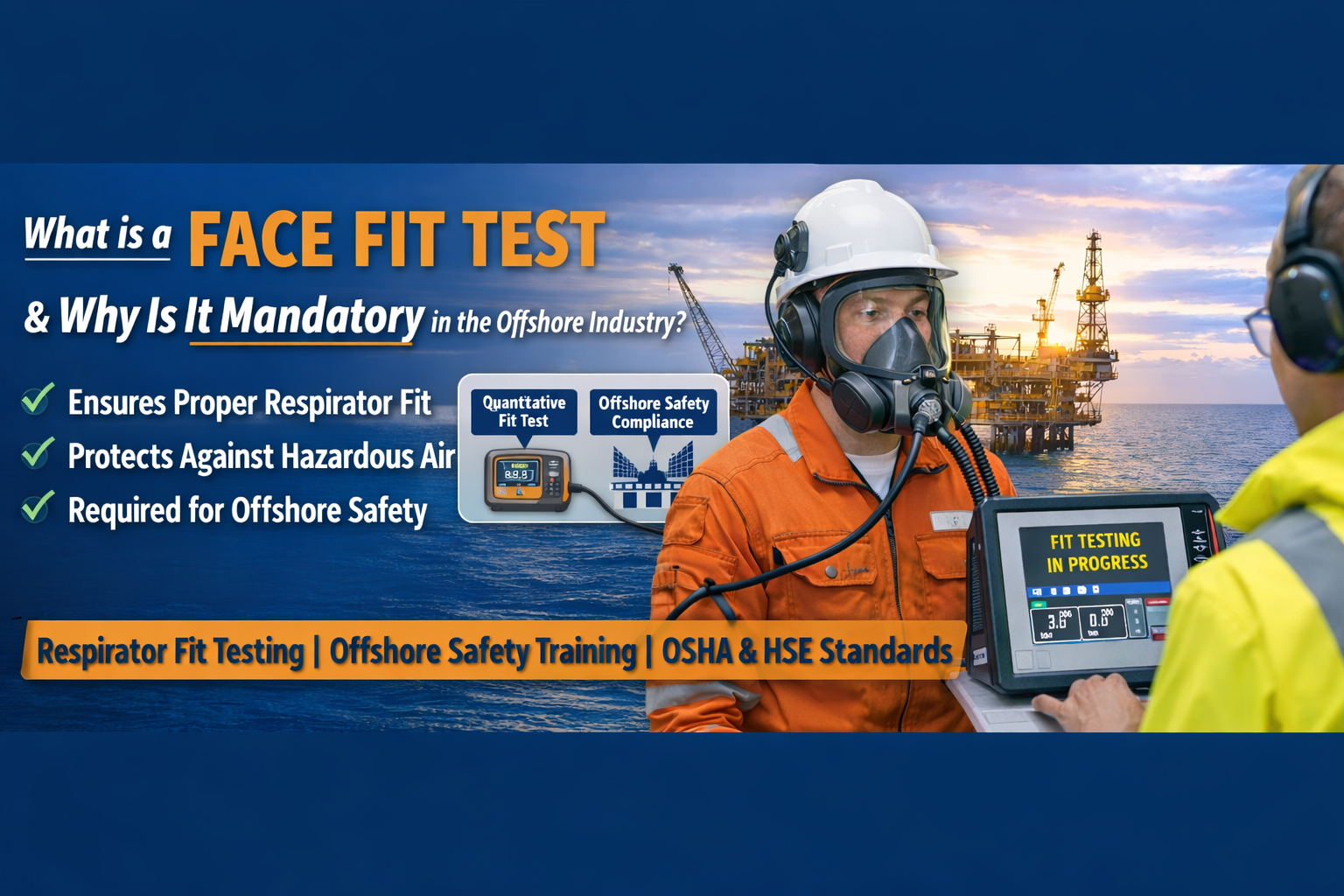Blogs category
Search
Popular categories
OSHA & Industrial Safety Courses
12Liberia Approved Rig Courses
4Marine and Offshore
3IADC Approved - E learning
2Offshore Oil and Gas Rig Courses
2Port & Marine Courses
1Latest blogs

What is a Face Fit Test & Why Is It Mandatory in Offshore Industry?
Thu, 12 Feb 2026

BOSIET & CA-EBS Safety Training Navi Mumbai | Elite Offshore Pvt Ltd
Tue, 10 Feb 2026

IADC RigPass vs BOSIET – what’s the difference?
Wed, 04 Feb 2026
Write a public review